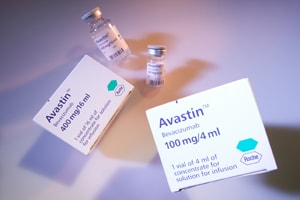 Roche faces another rejection from England’s National Institute for Health and Clinical Excellence (NICE) for its oncology drug Avastin after second draft guidance turned down the drug’s use within the NHS to treat women with advanced ovarian cancer.
Roche faces another rejection from England’s National Institute for Health and Clinical Excellence (NICE) for its oncology drug Avastin after second draft guidance turned down the drug’s use within the NHS to treat women with advanced ovarian cancer.
NICE, which appraises the cost-effectiveness of medicines used in England, has already turned down Avastin (bevacizumab) for use in several indications – including breast cancer, bowel cancer and non-small cell lung cancer (NSCLC) – and has previously released draft guidance that recommended against the ovarian cancer approval.
In its latest statement, NICE said that Roche has since failed to provide additional evidence to support a recommendation for Avastin in this indication, which covers the drug’s use in combination with the chemotherapy treatments paclitaxel and carboplatin.
According to Sir Andrew Dillon, chief executive of NICE, this was “a fact acknowledged by the manufacturer”.
In Roche’s own statement regarding the guidance, the company said it was “disappointed” by the decision, adding that NICE’s guidance means only a few women in England will have access to the treatment through the Cancer Drugs Fund (CDF) – a fund set up in 2011 to provide patients access to cancer drugs not recommended by NICE.
However, the Fund is set to end in March 2014 following the introduction next January of a new value-based pricing (VBP) system for new drugs used by the NHS in England, and Roche reiterated its previously stated point regarding the uncertainty of the fate of drugs currently provided by the CDF when it closes.
“There needs to be a clear transition plan for these medicines to provide much-needed reassurance for patients eligible for treatments currently funded by the CDF,” said the company.
“It is still uncertain how the new method of medicines assessment (value-based pricing) being introduced in January 2014 will be applied to existing medicines.”
Roche has more reason than most to be worried, with Avastin being the Fund’s top requested drug, receiving almost 2,000 applications for its use in the first 10 months of the scheme.
The most recent news concerning the future of drug reimbursement in the UK was the Department of Health’s announcement that NICE will have primary responsibility for assessing medicines for VBP when the new system is introduced in 2014.
Exact details of how this will work in practice are still to be determined, however, and the government has been warned by MPs that if details aren’t sorted soon, it could have a detrimental effect on UK healthcare.




